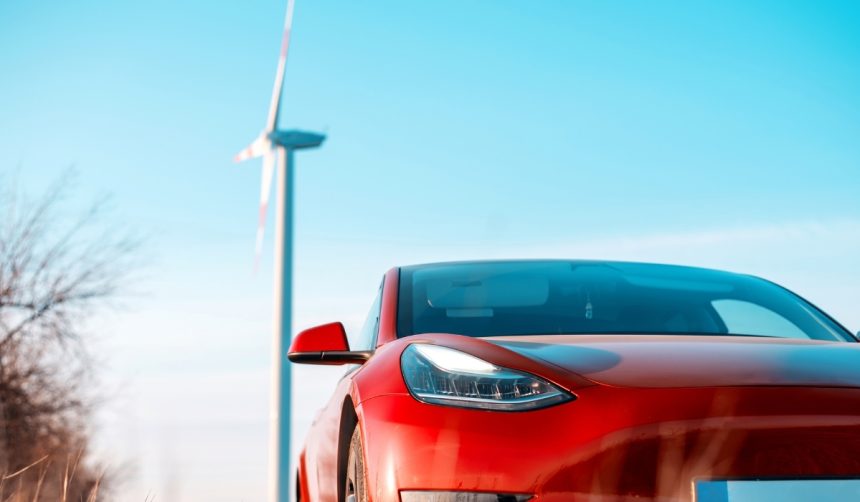Tesla’s efforts to produce batteries domestically have gained momentum, as CEO Elon Musk detailed the company’s expanding strategy to localize battery manufacturing entirely within the United States. This movement seeks to support American industry and reduce Tesla’s dependence on foreign, particularly Chinese, supply chains. As global supply chains encounter heightened scrutiny, Tesla aims to mitigate potential disruptions by sourcing, refining, and manufacturing all essential battery components such as lithium and cathodes at home. The company’s approach also aligns with ongoing political emphasis on strengthening domestic manufacturing, which could result in increased job opportunities and greater control over production quality and logistics.
Past coverage of Tesla’s battery sourcing strategy highlighted significant reliance on Chinese suppliers, with reports indicating that nearly 40 percent of essential battery materials previously originated from China. Since then, Tesla has made visible progress in building domestic supply lines, including the establishment of its Texas lithium refinery and collaborations with companies like Panasonic to increase U.S.-based battery cell production. Earlier analyses expressed skepticism over whether Tesla could substantially lower its dependence on foreign partners, but recent developments suggest that the company is moving steadily toward a more self-sufficient manufacturing process.
What Additional Steps Is Tesla Taking to Localize Production?
Tesla is not only increasing its internal production capacities, but it is also fostering relationships with U.S.-based suppliers and encouraging existing partners, such as Panasonic, to establish new facilities within the country. The Kansas battery cell plant represents a critical component in establishing a robust domestic supply chain. In parallel, Tesla’s plans to develop proprietary cathode and anode materials, as well as to process lithium in-house, form an integrated framework for minimizing external dependencies. Piper Sandler analyst Alexander Potter underscored these efforts, noting that Tesla stands alone among major automakers in its pursuit of large-scale, China-independent battery sourcing.
How Are Political and Economic Factors Influencing Tesla’s Decisions?
Political initiatives under the Trump Administration have emphasized sourcing raw materials and manufacturing domestically to strengthen the U.S. economy and reduce exposure to global risks. Tesla’s supply chain localization resonates with such policies, targeting both economic growth and national security considerations. By reducing exposure to geopolitical uncertainties that may arise from heavy reliance on foreign entities, the company attempts to insulate itself and its customers from supply disruptions or cost fluctuations that could affect vehicle production. Elon Musk publicly acknowledged the complexity and challenges involved in these efforts, remarking,
It is important, albeit extremely hard work, to localize supply chains to mitigate geopolitical risk
What Role Do Industry Partnerships Play in Tesla’s Approach?
Collaborations with long-standing partners like Panasonic, as well as potential engagement with other U.S.-based battery and material suppliers, help Tesla ensure a more resilient supply chain. These partnerships facilitate the technology transfer and infrastructure development needed to meet rising U.S. demand for electric vehicles. As new domestic facilities begin operation, Tesla expects to secure a more predictable and transparent supply of critical battery components, aligning its operations with broader industry trends toward localization.
Tesla’s strategy to intensify domestic battery production marks a marked shift from past industrial practices where cost efficiencies often overrode supply chain resilience. As the proportion of battery materials sourced from within the U.S. rises, the company is gradually positioning itself at the forefront of American EV manufacturing. For readers and industry observers, understanding this move provides insight into the shifting landscape of supply chain management in the electric vehicle sector. Companies seeking to emulate Tesla’s strategy may need to balance initial investments in domestic infrastructure with long-term security and sustainability benefits, especially as government policy and consumer preference drive demand for locally sourced products. By solidifying supply chains within national borders, automakers can shield themselves from external shocks more effectively and develop greater agility in responding to both market and policy shifts.
- Tesla ramps up domestic battery production to reduce Chinese reliance.
- New supply chain partnerships and facilities signal progress in localization.
- Political pressures and industry shifts drive Tesla’s manufacturing approach.










